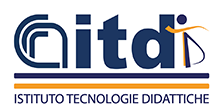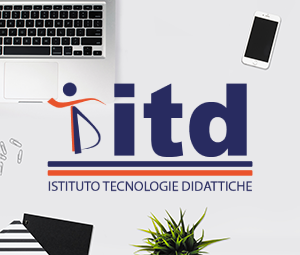In recent years, distance learning in universities has undergone a dramatic shifted away from distance replication of traditional teacher-centred approaches (e.g. lectures delivered via videocoferencing or TV) to more student-centred learning.While this shift has led to better quality learning (either in a blended or purely distance context), it has imposed a profound rethinking of the role of the teacher, who has become less of a direct knowlege source and more of a facilitator of active and/or collaborative learning processes. This difficult transition must be fostered and supported by specialised training programs designed to make university teaching staff aware of the various modes of e-learning available for university education.
It is with this goal in mind that ITD has come together with the University of Turin to develop a model for the training of university teachers in e-learning methodology. The collaboration is part of ITD's Xanadu research program on e-learning in university education and Turin University's ODL Project.
Given the strictly disciplinary nature of the context and the specific requirements of the target population, the model is based on a path of progressive discovery of e-learning potentials. This path has been designed to foster not just the development of methodological and design skills, but also the acquisition of basic understanding necessary for the autonomous, effective and critical adoption of e-learning. The path covers three levels of e-learning ordered by degree of complexity:
- extended/integrated learning, i.e. traditional lectures in which the web is used for the distribution of support material (purposely designed and/or stored in digital archives) and for online tutoring;
- blended solutions, i.e. alternation between on-campus lectures and online modules (assisted study, collaborative learning, etc.) featuring multimedia material;
- online education, i.e. online courses featuring assisted and collaborative learning based on multimedia material and collaborative group learning backed by synchronous and asynchronous online tutoring.
The first level is generally designed for teachers who are new to the subject, while the second and third levels are for those who have already had at least a year's experience in using e-learning as part of their teaching.
 Italiano (Italia)
Italiano (Italia)  English (United Kingdom)
English (United Kingdom) 

